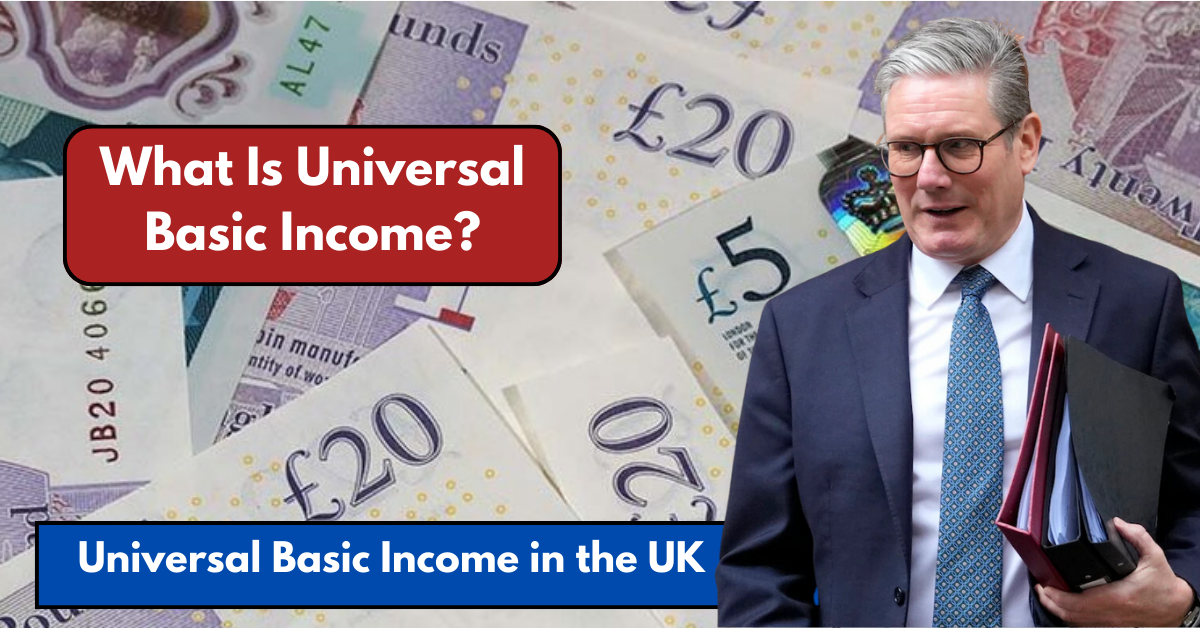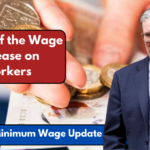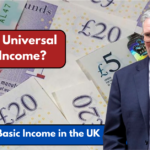Universal Basic Income (UBI) has emerged as a revolutionary idea to tackle some of the United Kingdom’s most pressing economic and social challenges. Far from being an idealistic vision, UBI offers practical solutions to issues like poverty, inequality, and the disruption caused by automation and climate change. By providing every citizen with a regular, unconditional payment, UBI ensures financial security while reducing the complexities of traditional welfare systems.
The Need for Universal Basic Income
Economic inequality in the UK has reached alarming levels. According to recent reports, the top 1% of earners capture a disproportionate share of income, leaving millions struggling to meet basic needs. Despite billions spent annually on welfare programs like Universal Credit, over 4 million children still live in poverty in the UK. The inefficiencies in these systems highlight the urgency for a more inclusive and straightforward approach like UBI.
Moreover, the rise of artificial intelligence (AI) and automation is reshaping the job market. Studies predict that nearly 30% of jobs could be automated by 2030, leaving many workers vulnerable. UBI could act as a safety net, enabling individuals to pursue education, retrain for new careers, or start businesses without the fear of financial instability.
What Is Universal Basic Income?

Universal Basic Income is a policy where every citizen receives a recurring, unconditional payment sufficient to cover basic needs. Its key features include:
- Unconditional: Payments are not based on employment status or income levels.
- Recurring: Regular payments, typically monthly.
- Universal: Available to all citizens equally.
Proposed amounts for UBI in the UK range from £1,200 to £1,600 per month, which could significantly improve living standards for millions.
Why Universal Basic Income Makes Sense?
- Simplifying Welfare Systems:
Current welfare programs like Universal Credit are costly and complicated. For example, Universal Credit costs £7 billion annually to administer and involves strict eligibility checks. In contrast, UBI eliminates these administrative costs, making it a more efficient system. - Reducing Inequality:
UBI can narrow the wealth gap by providing everyone with access to essential resources. Societies with less inequality enjoy benefits like improved life expectancy, reduced crime rates, and stronger social cohesion. - Preparing for Automation:
As automation disrupts traditional jobs, UBI ensures that individuals have the financial stability to adapt to these changes. This safety net can empower people to learn new skills or explore innovative career paths.
Funding Universal Basic Income

Critics often question how UBI would be funded. However, several practical strategies could make it feasible:
- Tax Reforms:
- Wealth Tax: A small annual tax on the wealthiest individuals could generate billions.
- Carbon Tax: Encouraging sustainability while creating revenue.
- Consolidating Welfare Programs:
By replacing existing welfare systems with UBI, significant savings can be achieved. For instance, Universal Credit and Winter Fuel Payments cost billions annually. Streamlining these into a single UBI program could save billions. - Sovereign Spending:
Governments can prioritize UBI in their budgets, similar to healthcare and defense spending, ensuring it becomes a foundational policy.
Real-World Success Stories
Pilot programs worldwide have demonstrated UBI’s potential:
- Finland (2017-2018): Recipients reported improved mental health and employment outcomes.
- Wales (2022): Care leavers receiving UBI experienced financial independence and better mental health.
- Kenya (Ongoing): UBI has reduced poverty and boosted local economies.
Addressing Misconceptions

- “UBI Discourages Work”
Evidence from trials in Finland and Canada shows that recipients continue working and often pursue better opportunities. - “It’s Too Expensive”
When factoring in savings from reduced administrative costs and increased economic activity, UBI becomes more affordable than critics claim. - “The Wealthy Don’t Need It”
UBI’s universality ensures fairness and simplicity. Wealthier individuals contribute more through progressive taxes, creating a balanced system.
Conclusion
Universal Basic Income is not just a bold idea; it is a necessary step toward a more equitable and sustainable society. By addressing economic disparities, preparing for automation, and simplifying welfare systems, UBI offers a path to economic security and social stability. The question is not whether the UK can afford UBI but whether it can afford to wait any longer.
This article has been carefully fact-checked by our editorial team to ensure accuracy and eliminate any misleading information. We are committed to maintaining the highest standards of integrity in our content.
Premlata is a seasoned finance writer with a keen eye for unraveling complex global financial systems. From government benefits to energy rebates and recruitment trends, she empowers readers with actionable insights and clarity. When she’s not crafting impactful articles, you can find her sharing her expertise on LinkedIn or connecting via email at biswaspremlata@gmail.com.









